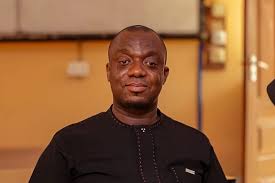The General Secretary of the New Patriotic Party (NPP), Justin Kodua Frimpong, has raised serious concerns about what he described as the politicisation of tribal and religious tensions in Ghana by the ruling National Democratic Congress (NDC).
Speaking at a press conference today, Kodua stated that human lives continue to be lost in parts of the country due to long-standing conflicts, particularly in Bawku, and accused the NDC of having contributed to deepening divisions in their bid to win political power in 2024.
“Human lives are being lost each and every day. Innocent students are being murdered. Innocent citizens are also losing their lives—not because of any wrongdoing, but simply because of where they find themselves or the tribe they belong to,” Kodua said.
He criticised the governing party for what he described as reckless political tactics, arguing that the NDC used tribal and religious issues as tools for electoral gain.
“It should serve as a caution to the NDC government that in politics, it is not everything we allow propaganda and misrepresentation to lead us—especially when it comes to matters of chieftaincy, religion, and ethnicity,” he added.
Justin Kodua referenced the 2024 elections, accusing then-candidate John Dramani Mahama and the NDC of exploiting the crisis in Bawku to score political points. He claimed that campaign messages from the NDC suggested they would resolve the conflict once elected, but that such promises were part of a broader strategy that aggravated the situation.
“Prior to the 2024 elections, the NDC, in their desperate attempt to win, cited tribalism and religious divisions and created problems in traditional setups. The then candidate, Mahama, made several pronouncements, suggesting the crisis in Bawku would be resolved under an NDC government,” Kodua stated.
He further suggested that the violence and instability seen in Bawku leading up to the 2024 elections were in part the result of deliberate political orchestration by the NDC.
Kodua’s remarks underscore growing tensions over how successive governments have handled the Bawku conflict and other tribal-related disputes.
Civil society organisations have urged political actors to refrain from using identity-based divisions as political tools and to support efforts aimed at national cohesion and reconciliation.
Source: AsaaseRadio


Comments are closed.